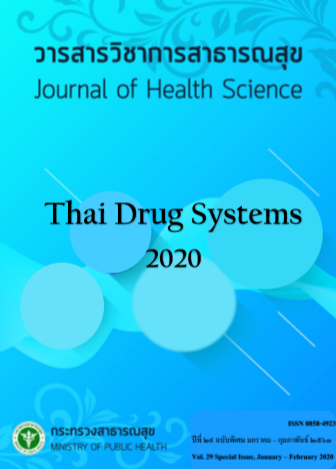The Impact of Drug Financing System under Thailand Universal Health Coverage (UHC) on the Performances of Drug System
Keywords:
finance system, drug system, drug financing system, drug benefit packageAbstract
The drug system has a direct impact on the country’s health system. A well performing of drug system is crucial for advancing the health system. However, its performance is extremely dependent on how well resources are being deployed. A strong finance system is essential to effectively manage monetary resources in the drug system. This review and analysis of how well the current financing system supports drug system performance provides beneficial feed-back information to inform actions on how to improve the drug system. Six performance indicators for how current financing mechanisms contribute to drug system performance. The review found a continuously increasing trend of drug spending, driven by the use of highly expensive health technology. Good access to essential medicines listed in the national list which is the drug benefit package of all major public health insurance schemes. Higher efficiency was found in the close-ended payment basis scheme than the fee-for-service basis payment scheme. However, there were inequities in accessibility to higher cost drugs among major health insurance schemes. The over- and -under-utilization of drugs relating to payment methods is of concern as an issue rational drug use. The current financing system encourages intensive cost-driven competition in drug markets, which is disadvantageous for Thailand local drug industry. The continuous increasing trend of drug importation value was found. This signifies the country’s dependence on imported drugs which negatively affect to the national drug security. The review identified 4 major recommendations. Those are the need for (1) the effective financing system to facilitate access to high cost drug, (2) financing mechanisms to strengthen local manufacturers capacity on research and development, (3) payment mechanism containing drug expenditure of the Civil Servant Medical Scheme, and (4) the measures to address inequity in access to medicines among beneficiaries covered by different health insurance schemes.
Downloads
Downloads
Published
How to Cite
Issue
Section
License
Copyright (c) 2020 Journal of Health Science - วารสารวิชาการสาธารณสุข

This work is licensed under a Creative Commons Attribution-NonCommercial-NoDerivatives 4.0 International License.







